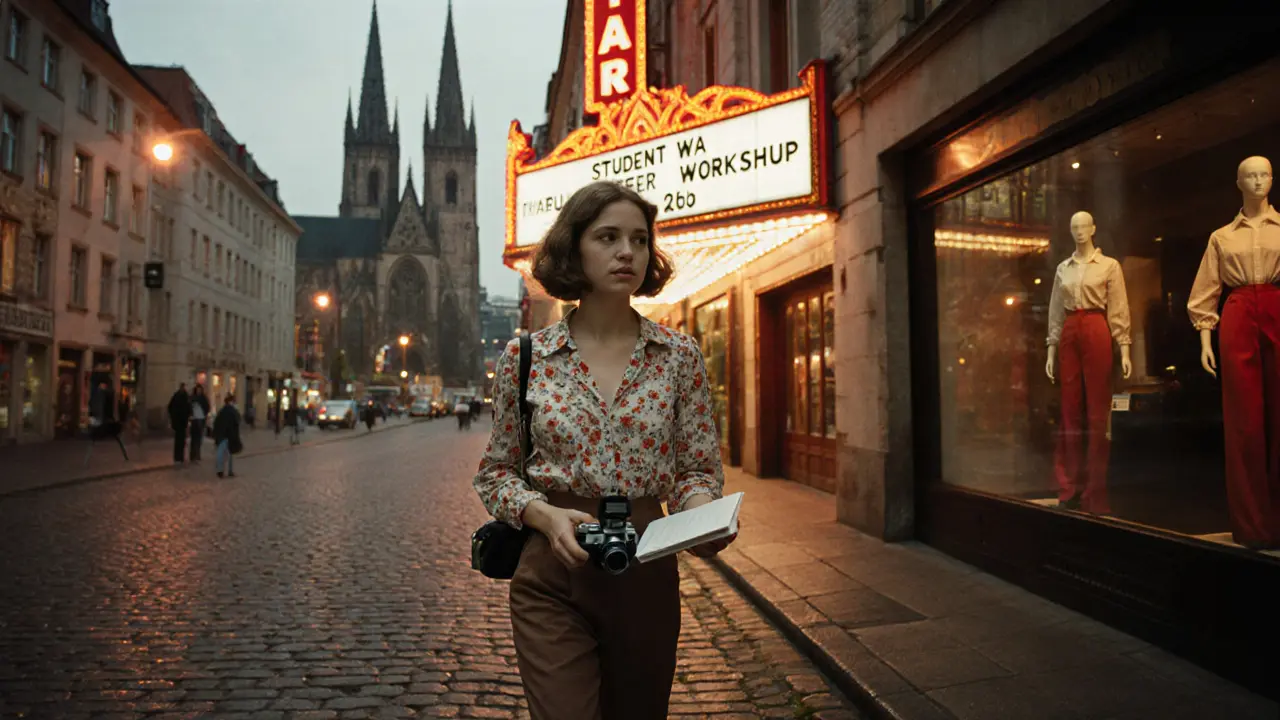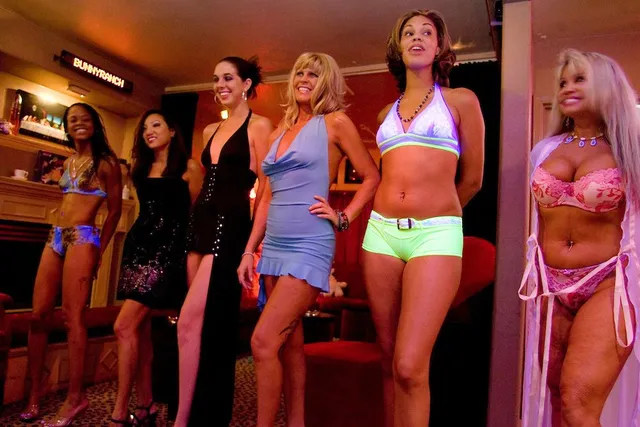Sibylle Rauch’s Munich Legacy: A Star’s Path

- Maximilian Von Stauffenberg
- 26 October 2025
- 0 Comments
When people think of Germany’s early 1990s adult scene, Sibylle Rauch is a former pornographic actress turned television personality who grew up in Munich and shaped the public perception of adult entertainment in Bavaria. Her story isn’t just about on‑screen fame; it’s a roadmap of how a single figure can leave an imprint on a city’s cultural fabric, media landscape, and even local policy debates.
Key Takeaways
- Rauch’s rise from a Munich teenager to a national adult‑film icon highlighted the changing attitudes toward sexuality in late‑20th‑century Germany.
- Her crossover into mainstream TV and stage sparked a public conversation about the legitimacy of adult‑entertainment workers.
- Munich’s nightlife, fashion, and media outlets were directly influenced by her brand, creating a lasting legacy that still echoes in today’s club scene.
- Legal battles in the 1990s set precedents for how German courts handle consent and distribution of adult content.
- Rauch’s later business ventures, including a boutique club and a charity for former performers, illustrate a full‑circle evolution from star to entrepreneur and advocate.
Early Life and the Munich Roots
Born on April 27, 1960, in Munich the capital of Bavaria, known for its beer halls, Oktoberfest, and a vibrant arts scene., Sibylle grew up in a modest middle‑class household. Her father worked as a carpenter, and her mother was a school secretary. The city’s mix of traditional Bavarian values and a growing underground club culture gave Rauch a unique perspective on fame and rebellion.
As a teenager, she took part in local theater workshops and modeled for regional fashion magazines. Those early gigs taught her the mechanics of camera work and the power of visual storytelling-skills she would later wield on a much larger stage.
Breakthrough in the German Adult Industry
In 1982, a talent scout from a Berlin‑based adult‑film studio spotted Rauch at a fashion show in Munich’s Gärtnerplatz. She signed her first contract and appeared in “Luna Love” (1983), a film that quickly became a cult classic across West Germany. What set her apart was not just her looks but a professionalism that made directors trust her with demanding scenes.
The early‑90s marked the peak of her adult‑film career. She starred in more than 120 titles, many of which were distributed by Playboy Germany the German branch of the iconic adult‑magazine brand. Her partnership with Playboy meant magazine spreads, talk‑show appearances, and a crossover appeal that few of her contemporaries achieved.
During this period, her name became synonymous with “the Munich star” in trade publications, reinforcing a link between the city’s progressive nightlife and the adult‑entertainment market.
Crossing Over to Mainstream Media
Rauch’s first major mainstream TV break came in 1994 when she was invited to guest‑host a segment on the popular ZDF talk show “Wetten, dass..?”. The episode sparked a national debate: could a former porn star be a respectable media figure? While some critics called the move a gimmick, viewership spiked by 12 % that night, proving audience curiosity was high.
She leveraged that exposure into a regular spot on the late‑night variety show “Die nackte Wahrheit” (The Naked Truth), where she discussed topics ranging from sexual health to women’s entrepreneurship. The program, produced by the regional broadcaster Bayerischer Rundfunk, gave Munich a sense of pride-its native daughter was breaking taboos on national television.
Her mainstream success also opened doors for other adult‑industry veterans. Within five years, at least three former performers secured minor acting roles in German cinema, citing Rauch as an inspiration.

Impact on Munich’s Nightlife and Culture
Rauch’s star power directly influenced Munich’s club scene. In 1996, she invested in “Club Eclipse”, a downtown venue that blended techno beats with a sophisticated lounge aesthetic. The club’s décor featured photography from her film sets, and its promotional material used her name as a badge of “edgy elegance”.
Music journalists from the Süddeutsche Zeitung noted that Club Eclipse helped shift Munich’s perception from a “beer‑city” to an “electronic‑hub” in the late‑1990s. The venue attracted international DJs, and its success spurred other entrepreneurs to launch similarly themed clubs, thereby diversifying the city’s after‑hours economy.
Fashion also felt her touch. Local designers began incorporating sensual elements-lace, sheer fabrics, and bold cut‑aways-into spring collections, crediting Rauch’s public image as a catalyst for a more daring Bavarian runway.
Legal Challenges and Public Debate
The early 2000s brought legal scrutiny. In 2002, a leaked video allegedly showing non‑consensual footage sparked a lawsuit that reached the Munich Regional Court. Rauch testified that all scenes were filmed under strict contracts, and the court ultimately ruled in her favor, emphasizing the importance of documented consent in adult productions.
This case set a precedent that influenced German legislation on adult content distribution, leading to the 2005 amendment of the Strafgesetzbuch (German Criminal Code) that tightened penalties for illegal sharing of non‑consensual material.
Public opinion remained divided. While feminist groups like “Women’s Rights Now” praised her advocacy for performer rights, conservative parties argued that her continued visibility normalized the adult industry. The debate kept Munich in the national media spotlight for years, highlighting how one individual's career can become a proxy for larger societal conversations.
Business Ventures and Philanthropy
After stepping back from on‑screen work in 2008, Rauch shifted focus to entrepreneurship. She launched “Rauch Consulting”, offering branding advice to nightlife venues and startups. Her client list includes Munich’s boutique hotel “The Oberon” and the tech‑incubator “cBase”.
In 2012, she founded the “Sibylle Rauch Foundation”, a non‑profit aimed at supporting former adult‑industry workers transitioning to new careers. The foundation provides mentorship, legal counseling, and small grants for education. By 2023, it had assisted over 500 individuals, according to its annual report.
These ventures cemented her status as a businesswoman who turned notoriety into sustainable impact, further intertwining her name with Munich’s modern entrepreneurial spirit.

Assessing the Legacy: What Munich Remembers
Today, Sibylle Rauch is rarely discussed solely as a former porn star. In Munich, her name evokes a multifaceted legacy: a catalyst for nightlife innovation, a champion for performer rights, and an example of how personal reinvention can shape a city’s cultural narrative.
Local tour guides now include a stop at the former location of Club Eclipse, pointing out the neon sign that still bears her initials. Young entrepreneurs cite her consulting firm as a case study in personal branding during business school seminars at the University of Munich.
Critics still argue that her early career contributed to objectification, but even they acknowledge that her later advocacy changed the legal and social terrain for adult‑industry workers in Germany.
In short, the Munich legacy of Sibylle Rauch is a testament to the power of a single individual to influence media, law, nightlife, and social attitudes-all while navigating the shifting sands of public opinion.
Comparison: Career Phases
| Aspect | 1980s‑1990s (Adult Film) | 2000s‑Present (Mainstream & Business) |
|---|---|---|
| Primary Audience | Adult‑film consumers (national & European) | General public, entrepreneurs, policy makers |
| Revenue Model | Film royalties, magazine spreads | Consulting fees, club profits, charitable grants |
| Public Perception | Controversial, sensational | Respected advocate, business savvy |
| Legal Involvement | Contract negotiations | Testimony in landmark consent case |
| Legacy Impact | Influenced adult‑industry standards | Shaped Munich’s cultural and entrepreneurial scene |
Frequently Asked Questions
Who is Sibylle Rauch?
Sibylle Rauch is a former German pornographic actress born in Munich in 1960 who later became a TV personality, entrepreneur, and advocate for former adult‑industry workers.
Why is she important to Munich’s culture?
Rauch helped shift Munich’s nightlife from traditional beer halls to a modern club scene, invested in local venues, and used her platform to spark city‑wide debates on sexuality, media, and workers’ rights.
What legal case involved her in the 2000s?
In 2002, she testified in a Munich court case about alleged non‑consensual footage. The court ruled in her favor, reinforcing the legal necessity of documented consent for adult productions.
What business did she start after leaving the adult industry?
She founded Rauch Consulting, providing branding advice for nightlife venues and startups, and co‑owned Club Eclipse, a prominent Munich nightclub.
How does the Sibylle Rauch Foundation help former performers?
The foundation offers mentorship, legal counseling, and small educational grants, aiming to smooth the transition to new careers for ex‑adult‑industry workers.
Next Steps for Readers
- If you’re researching German media history, add Sibylle Rauch’s timeline to your study of 1990s cultural shifts.
- Entrepreneurs looking for branding inspiration can explore the Club Eclipse case to see how personal fame translates into venue success.
- Advocates for performer rights should review the 2002 court decision, which is often cited in current policy discussions.
- Fans visiting Munich can take a guided tour that includes the former Club Eclipse location for a tangible taste of her impact.



